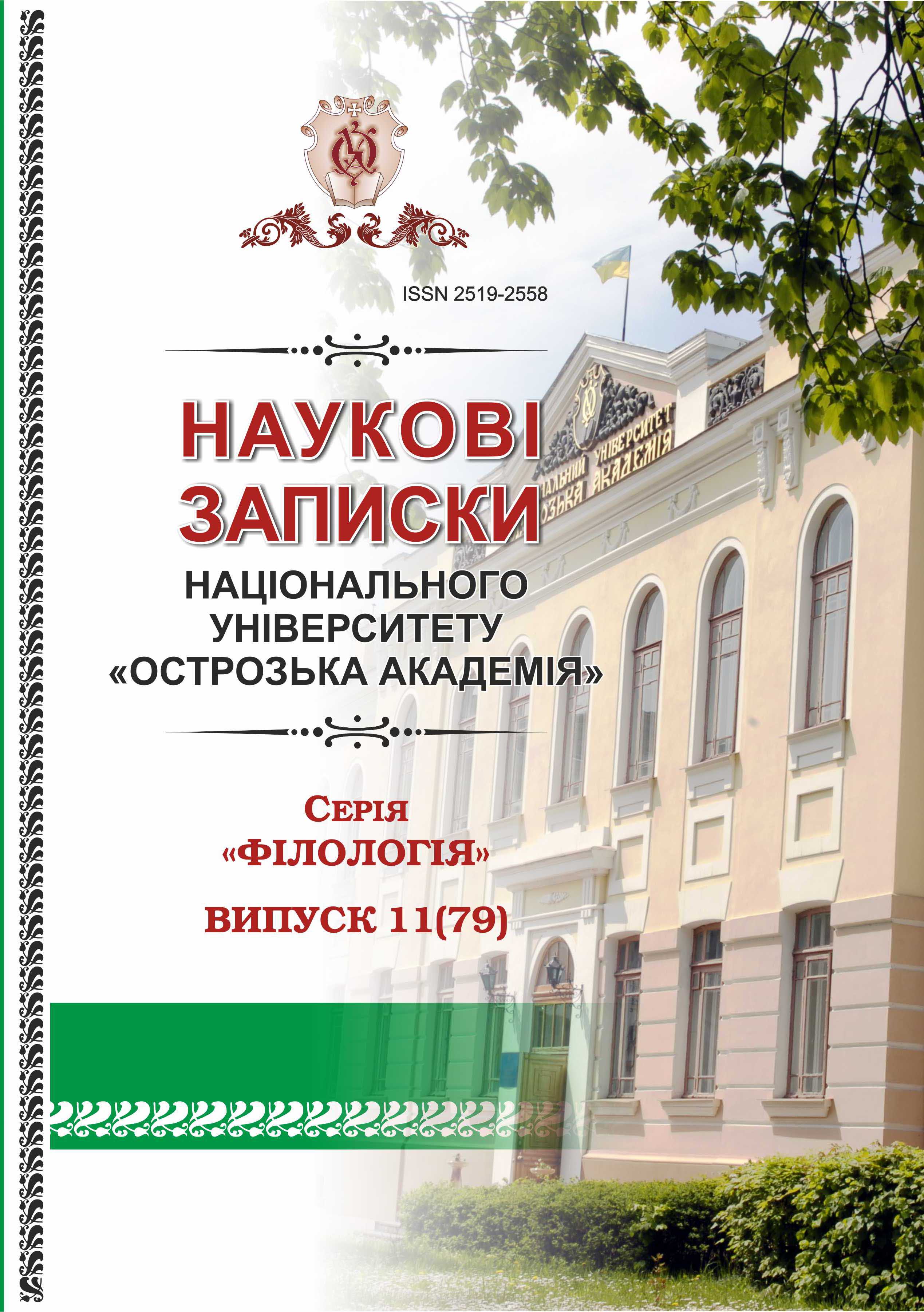PSYCHOLOGISM OF THE NOVEL “THE BOOK OF TOMORROW” BY CECILIA AHERN
Keywords:
fairy-tale allusions, loss, title, comparative tropes, composition, key word, personification, psychological crisis, symbol, temporal fractures, fictional psychologism, artistic detailAbstract
The article reveals the phenomenon of psychologism in fiction and the ways of its actualization in modern English literature concerned with psychological aspects. The notion is analyzed on the basis of Cecilia Ahern’s novel “The Book of Tomorrow” that depicts the protagonist’s psychological crisis as a result of personal loss and the ways of coping with negative experience. Lexical-stylistic and compositional means are studied through the prism of the representation of the protagonist’s internal feelings caused by inner and outer factors. The role of symbols, fairy-tale allusions, personifications, artistic details and comparative tropes in depicting the young girl’s crisis state and her reactions to life changes is traced. The function of key words, implicit details, temporal fractures and the title in the compositional framing of the text is researched. The role of the mentioned-above linguistic means in the reflection of transformations taking place in the protagonist’s consciousness is studied. Some peculiarities of Cecilia Ahern’s individual author’s style, such as wide use of fairy-tale allusions and personifications, contrastive application of some lexical-stylistic means (artistic details) and the coherent function of the others (an implicit detail, extended metaphors), are outlined. The author’s favourite key words are listed; the stylistic role of their repetitions in different contexts is shown. The retrospective actualization of the lexeme tomorrow presented in the title is traced.

